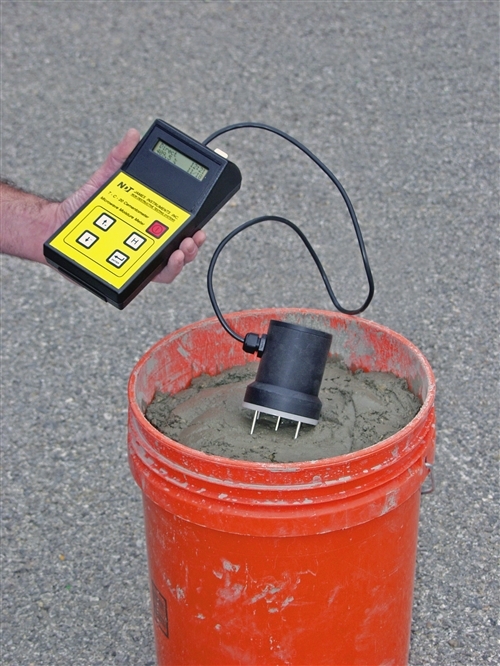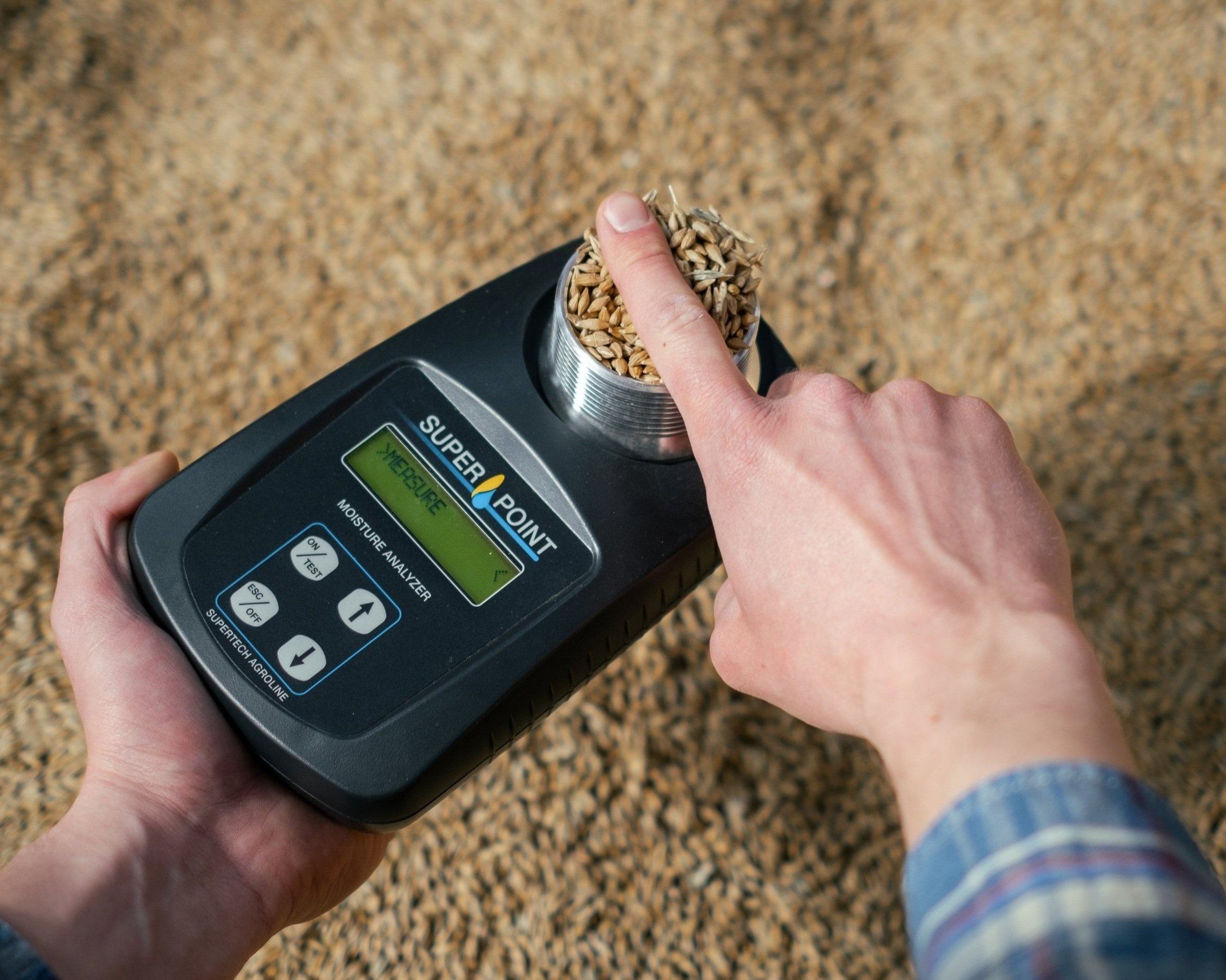The Scientific Research Behind Moisture Meters: Just How They Function and Why They're Necessary
The Scientific Research Behind Moisture Meters: Just How They Function and Why They're Necessary
Blog Article
The Ultimate Guide to Moisture Meters: A Comprehensive Overview and Just How They Can Conserve You Cash
In the world of building upkeep, construction, and various industries, the significance of properly measuring wetness degrees can not be overstated. Wetness meters function as important tools in detecting and checking moisture web content in materials, assisting in preventing pricey damages and guaranteeing the top quality of items. Recognizing the subtleties of various kinds of wetness meters, their applications, and the prospective cost-saving benefits they supply can be a game-changer for organizations and experts alike. Finding exactly how these devices can not just improve processes yet also contribute to economic cost savings is a trip worth starting.
Kinds of Moisture Meters
One usual kind is the pin-type wetness meter, which determines the electrical resistance in between two pins placed right into a product. Pinless wetness meters, on the various other hand, use electro-magnetic sensor plates to check a larger location without causing damage to the material's surface.
In addition, there are additionally specialty wetness meters created for certain materials like hay, dirt, or grain. These meters provide accurate moisture analyses tailored to the special homes of the material being tested. Infrared dampness meters determine the thermal residential properties of a material to identify its wetness content non-invasively, making them valuable for applications where pin or pinless meters might not appropriate. Comprehending the different types of wetness meters readily available can aid markets choose the most ideal device for their particular moisture measurement requirements.

Benefits of Making Use Of Moisture Meters

Moreover, utilizing dampness meters can bring about enhanced power effectiveness. By determining locations with high dampness levels, such as leaks or inadequate insulation, changes can be made to enhance energy preservation and reduce utility expenses. In agricultural settings, wetness meters play a critical function in enhancing crop returns by making it possible for farmers to keep an eye on soil dampness levels and make educated irrigation choices. Overall, the advantages of using wetness meters extend across different markets, supplying cost-effective remedies and promoting better quality assurance methods.
How to Pick the Right Moisture Meter
Choosing the appropriate dampness meter includes thinking about key aspects such as material compatibility, dimension array, and calibration precision. When choosing a moisture meter, it's necessary to make certain that the meter appropriates for the specific product you will certainly be testing. Various materials have differing electric buildings that can influence dampness analyses, so picking a meter made for your material is vital for exact results. Additionally, consider the measurement variety of the wetness meter. Guarantee that the meter can spot wetness levels within the variety required for your applications. Calibration accuracy is an additional essential aspect to keep in mind (Moisture Meter). Go with a moisture meter with trustworthy calibration to guarantee constant and specific readings. Some meters might need regular calibration adjustments, so comprehending the calibration process is crucial. By carefully examining these variables, you can choose a dampness visite site meter that satisfies your requirements and offers accurate moisture dimensions for your projects.
Proper Techniques for Moisture Meter Use
To make sure precise wetness analyses and optimize the effectiveness of a dampness meter, employing appropriate methods is necessary. When making use of a pin-type dampness meter, insert the pins or probes into the product being checked up until they make complete call. Ensure the pins are vertical to the surface to obtain the most exact reading. For pinless wetness meters, hold the device flat versus the product and move it slowly to cover the entire location for an average analysis. It's important to adjust the wetness meter according to the product being tested to boost precision. Take multiple analyses throughout the surface and ordinary them out for an extra trusted result. Furthermore, make certain that the product being evaluated is accustomed to the environment to avoid manipulated readings. Routine upkeep of the wetness meter, such as cleaning up the pins or sensing unit, is also crucial to make certain regular and precise analyses. By complying with these correct strategies, customers can rely upon their moisture meter to give credible moisture degrees, helping in stopping costly damages or making sure quality in numerous applications.

Price Financial Savings Through Moisture Meter Applications
How can the calculated usage of wetness meters lead to considerable price savings throughout numerous industries? Wetness meters play an essential function in price savings by avoiding potential damage and making sure quality assurance in different fields. In the agriculture market, dampness meters help in identifying the ideal time for collecting crops, avoiding excess or over-drying moisture that can affect the last product's quality. This exact surveillance helps farmers prevent unneeded losses and optimize their return.

Furthermore, in the food handling sector, dampness meters are essential for keeping an eye on item high quality and making sure compliance with security policies. By accurately measuring moisture content in food, makers can avoid perishing, keep freshness, and reduce waste, resulting in considerable price financial savings. Overall, the strategic application of wetness meters is an important financial investment that can result in considerable price reductions and enhanced performance across various sectors.
Final Thought
In verdict, wetness meters are important devices for determining and spotting moisture navigate here levels in different products. By utilizing the right moisture meter and complying with correct techniques, users can efficiently avoid costly problems triggered by excess wetness.
Dampness meters serve as vital devices in spotting and checking moisture content in products, aiding in pop over to this site avoiding expensive damages and making sure the top quality of items. Infrared dampness meters gauge the thermal properties of a product to establish its dampness web content non-invasively, making them useful for applications where pin or pinless meters may not be suitable.Moisture meters use very useful advantages in accurately evaluating and keeping track of wetness levels in diverse products and settings. In agricultural settings, moisture meters play a crucial duty in maximizing plant returns by allowing farmers to monitor soil moisture levels and make informed irrigation choices.In final thought, dampness meters are important tools for finding and gauging dampness levels in numerous materials.
Report this page